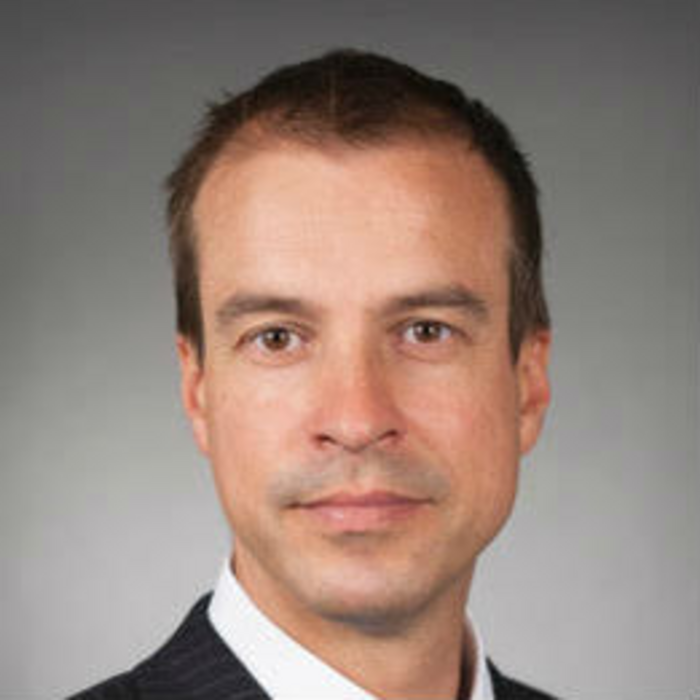The chemist Professor Alexej Jerschow of New York University is the first recipient of the newly established Carl Zeiss Humboldt Research Award. The prize is designed to pay tribute to the work of internationally outstanding STEM researchers. Alexej Jerschow was nominated for the award by Dmitry Budker, Professor of Experimental Atomic Physics at Johannes Gutenberg University Mainz (JGU) and Section Leader at the Helmholtz Institute Mainz (HIM). Jerschow will be collaborating with Budker’s research team in selected projects. The award is funded by the Carl Zeiss Foundation and presented by the Alexander von Humboldt Foundation. It is endowed with EUR 100,000, plus up to EUR 50,000 being available for Jerschow’s activities while visiting Germany such as participation in specialist conferences and the acquirement of research equipment while here. The official award ceremony will be taking place during the Humboldt Foundation’s Annual Meeting in Berlin on 28 June 2023.

Credit: photo/©: private
The chemist Professor Alexej Jerschow of New York University is the first recipient of the newly established Carl Zeiss Humboldt Research Award. The prize is designed to pay tribute to the work of internationally outstanding STEM researchers. Alexej Jerschow was nominated for the award by Dmitry Budker, Professor of Experimental Atomic Physics at Johannes Gutenberg University Mainz (JGU) and Section Leader at the Helmholtz Institute Mainz (HIM). Jerschow will be collaborating with Budker’s research team in selected projects. The award is funded by the Carl Zeiss Foundation and presented by the Alexander von Humboldt Foundation. It is endowed with EUR 100,000, plus up to EUR 50,000 being available for Jerschow’s activities while visiting Germany such as participation in specialist conferences and the acquirement of research equipment while here. The official award ceremony will be taking place during the Humboldt Foundation’s Annual Meeting in Berlin on 28 June 2023.
Exceptionally broad research approach in the field of nuclear magnetic resonance
The Carl Zeiss Humboldt Research Award is intended to honor international top-level researchers whose fundamental discoveries, theories, or findings have substantially shaped their field even beyond their immediate research area and will continue to make remarkable findings in future. Furthermore, they should have helped contribute to increased and sustained diversity within their own field. The annual award is to go to an internationally eminent researcher working outside Germany, nominated by senior researchers at institutions in Baden-Württemberg, Rhineland-Palatinate and Thuringia.
Alexej Jerschow studied at the Johannes Kepler University Linz where he obtained his doctorate following a stay at the Norwegian University of Science and Technology (NTNU) in Trondheim. While a postdoc, his interests took him to the University of Lausanne and the University of California, Berkeley. Jerschow has been Full Professor of Chemistry at New York University since 2013. Among his various research accomplishments are the development of innovative methods of and applications for nuclear magnetic resonance of exceptional breadth and variety. His work in this area encompasses fundamental research to activities focusing on practical applications. This includes research in the medical field and the development of an MRI technique for assessing the status of lithium ion batteries.
“In view of Alexej Jerschow’s extraordinarily broad research approach, which covers a wide range of different disciplines, we can expect him to continue to make further exceptional breakthroughs in such fields as medicine, biophysics, the energy sector, and fundamental research,” said Professor Dmitry Budker. “I am convinced that Professor Jerschow will make a significant contribution to our understanding of nuclear resonance states and how to utilize these, how we can improve the corresponding image contrasts and produce new medical- and material science-related applications.”
Collaborative research benefits from excellent infrastructure in Germany
The Carl Zeiss Humboldt Research Award gives Jerschow the opportunity to come to Germany for 6 to 12 months. The team headed by Dmitry Budker will welcome him by organizing a Carl Zeiss Humboldt Lecture at Mainz University, where the award winner can introduced himself to specialist colleagues. “The award will make it possible for us to establish and further consolidate cooperation between US and German institutions,” anticipated Budker. “The superb infrastructure that Jerschow will find at leading German institutions will allow him to realize many of his concepts and projects both rapidly and on the large scale.” Professor Alexej Jerschow will begin his research stay in Germany in May 2023.
Related links:
- https://www.hi-mainz.de/ – Helmholtz Institute Mainz
- https://as.nyu.edu/faculty/alexej-jerschow.html – Professor Dr. Alexej Jerschow
- https://wp.nyu.edu/jerschow/ – Professor Dr. Alexej Jerschow’s Lab
- https://www.humboldt-foundation.de/en/explore/newsroom/news/carl-zeiss-humboldt-research-award-goes-to-alexej-jerschow – press release of the Alexander von Humboldt Foundation
Read more:
- https://press.uni-mainz.de/erwin-schroedinger-prize-for-international-research-team-at-the-helmholtz-institute-mainz/ – press release “Erwin Schrödinger Prize for international research team at the Helmholtz Institute Mainz” (4 Oct. 2022)
- https://press.uni-mainz.de/urban-sites-such-as-berkeley-and-brooklyn-have-their-individual-magnetic-pulse/ – press release “Urban sites such as Berkeley and Brooklyn have their individual magnetic pulse” (26 July 2022)
- https://press.uni-mainz.de/metabolite-fumarate-can-reveal-cell-damage-new-method-to-generate-fumarate-for-mri-presented/ – press release “Metabolite fumarate can reveal cell damage: New method to generate fumarate for MRI presented” (27 April 2021)
- https://press.uni-mainz.de/hyperpolarized-proton-magnetic-resonance-imaging-used-to-observe-metabolic-processes-in-real-time/ – press release “Hyperpolarized proton magnetic resonance imaging used to observe metabolic processes in real time” (11 March 2021)
- https://press.uni-mainz.de/venus-flytraps-found-to-produce-magnetic-fields/ – press release “Venus flytraps found to produce magnetic fields” (2 Feb. 2021)
- https://press.uni-mainz.de/dmitry-budker-receives-norman-f-ramsey-prize-of-the-american-physical-society/ – press release “Dmitry Budker receives Norman F. Ramsey Prize of the American Physical Society” (21 Oct. 2020)
- https://press.uni-mainz.de/new-nmr-method-enables-monitoring-of-chemical-reactions-in-metal-containers/ – press release “New NMR method enables monitoring of chemical reactions in metal containers” (15 July 2020)
- https://press.uni-mainz.de/new-simple-method-for-measuring-the-state-of-lithium-ion-batteries/ – press release “New simple method for measuring the state of lithium-ion batteries” (7 May 2020)




